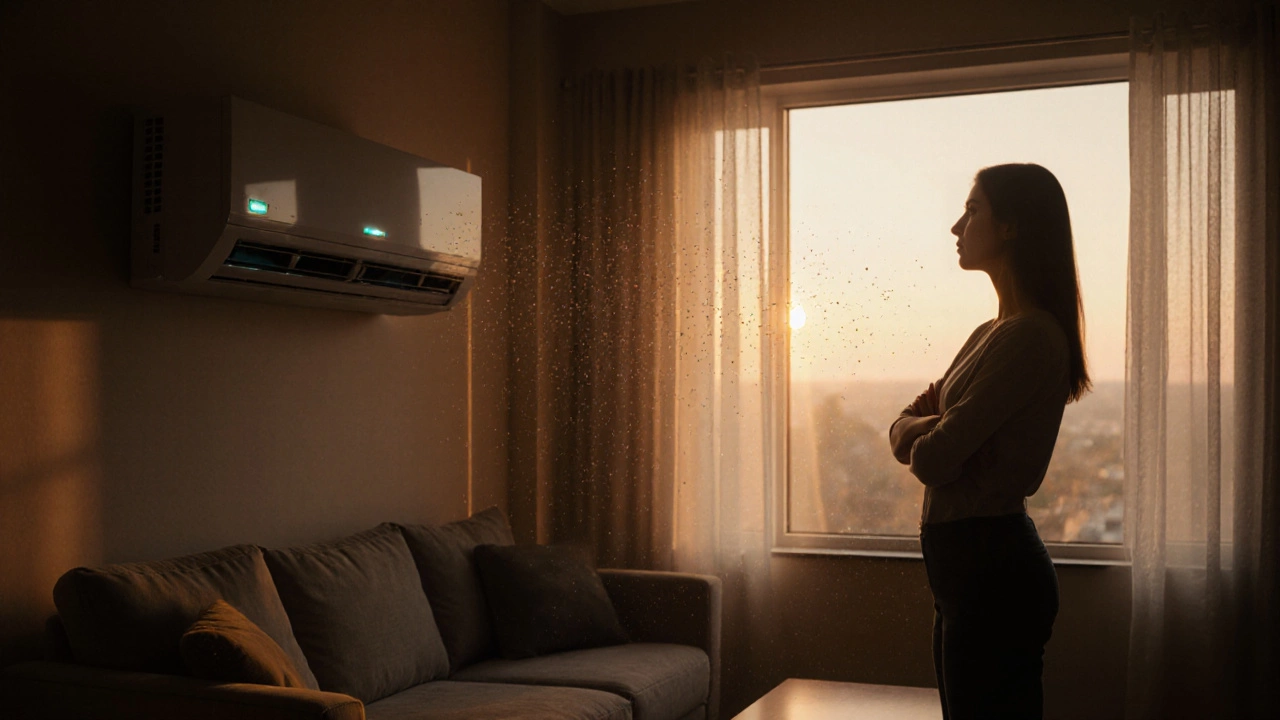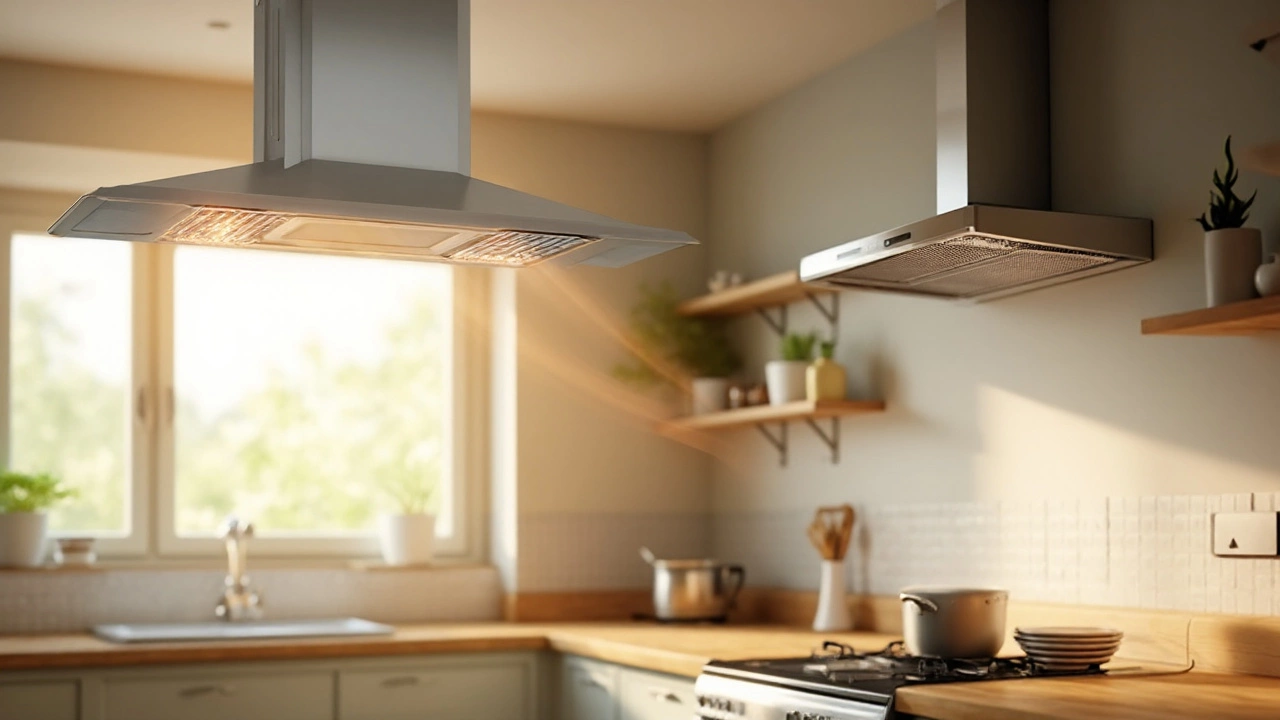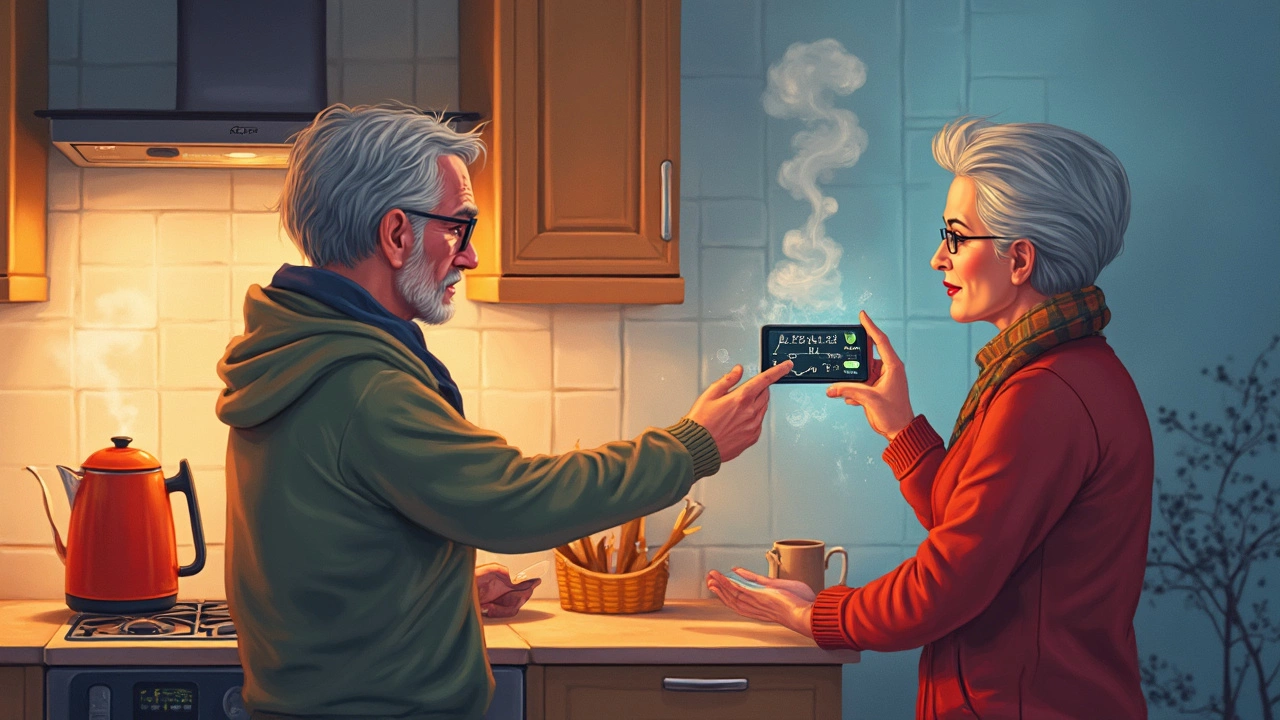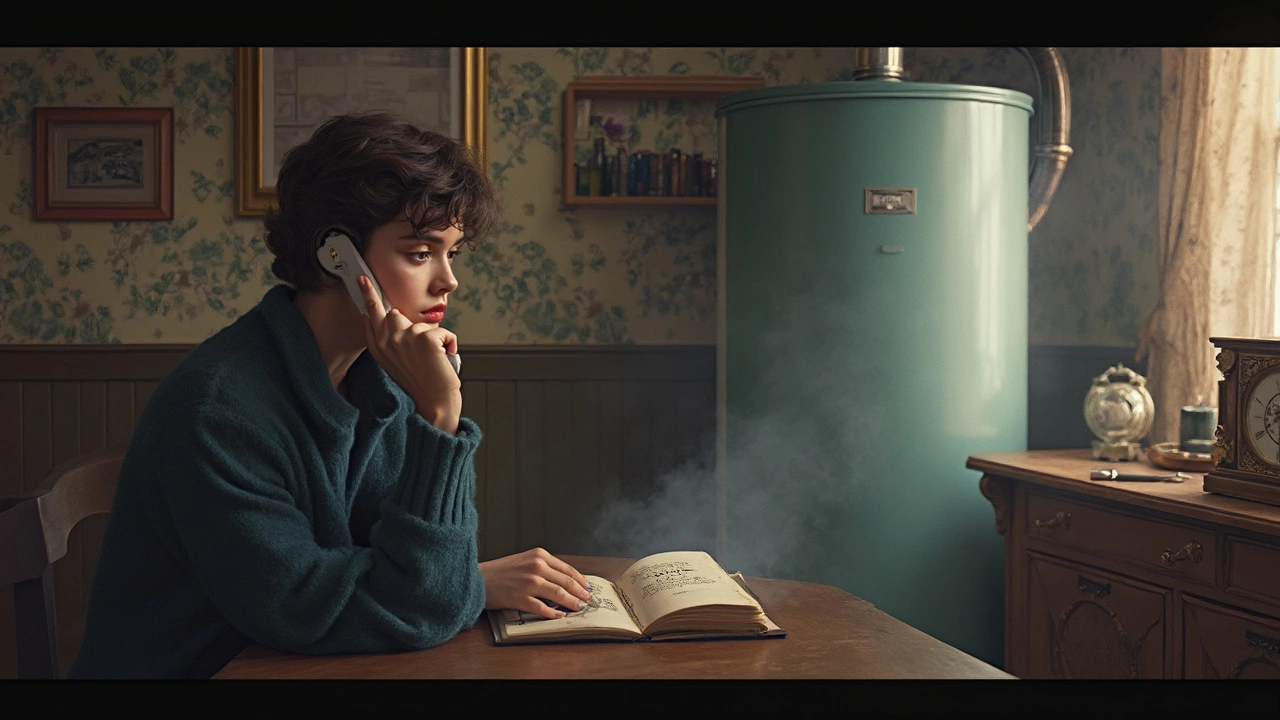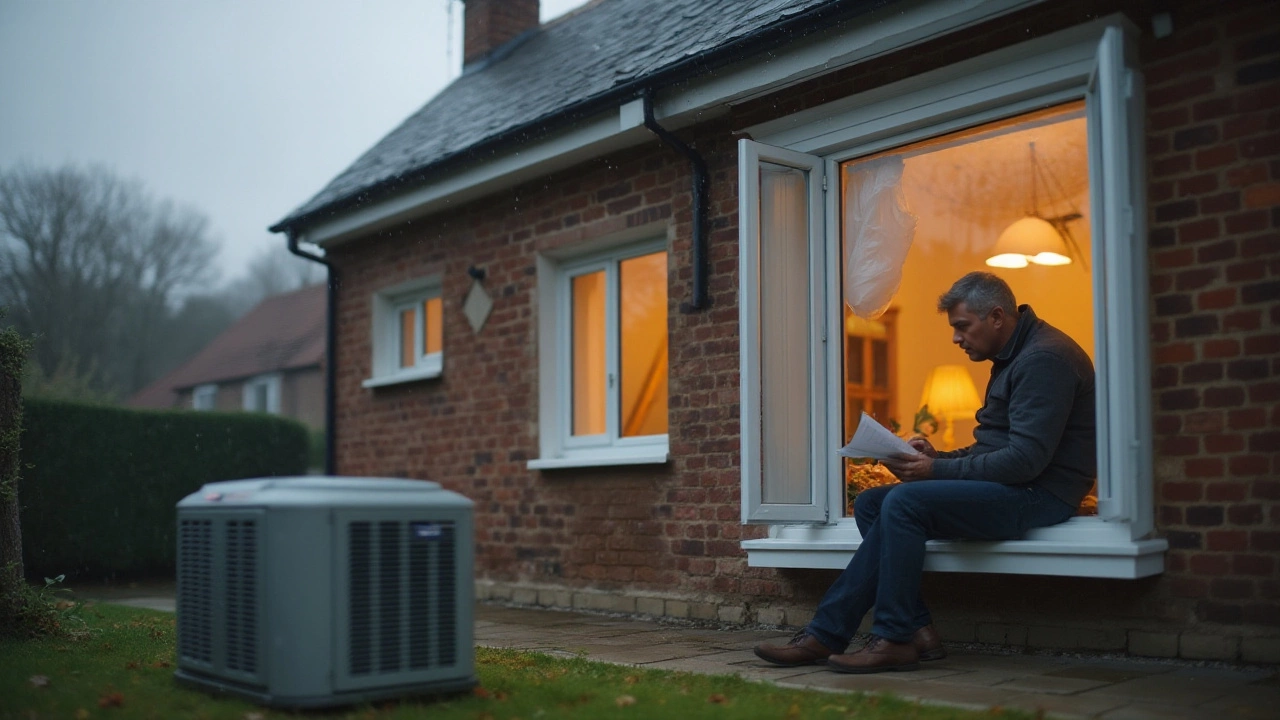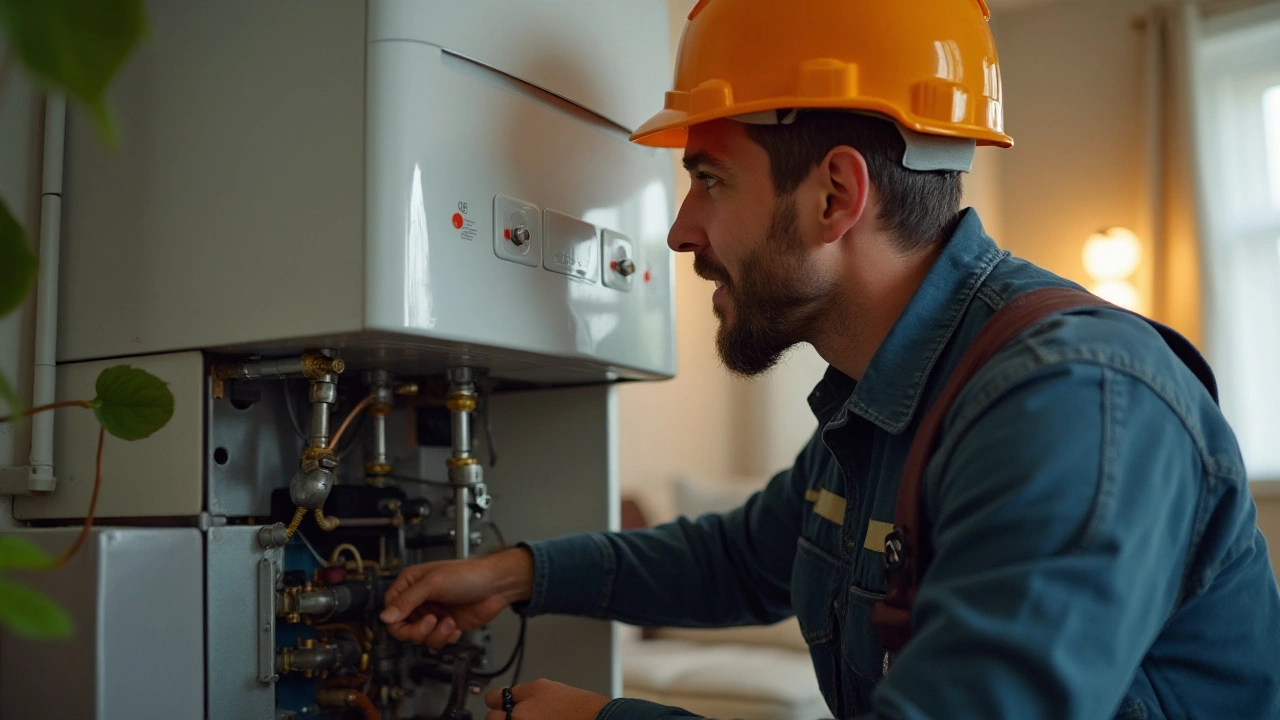Home Improvement Made Simple: Real Tips for Everyday Repairs
Got a leaky faucet, a noisy boiler, or a dishwasher that won’t start? You don’t need to call a pro for every hiccup. With a few basic tools and the right know‑how, most common problems can be solved in an afternoon. Below you’ll find straightforward advice that covers the biggest pain points around the house – from heating to kitchen appliances.
Keep Your Heating System Running Smoothly
When winter hits, the last thing you want is a cold home. Boilers and water heaters are the heart of your heating, so a quick check can save you weeks of shivering. First, look at your boiler’s pressure gauge. It should sit between 1 and 1.5 bar when the system is cold. If it’s lower, bleed the radiators and top up the system using the filling loop – a simple process that most DIYers can handle.
Next, listen for unusual noises. A rattling boiler often means air trapped in the pump or a loose part that needs tightening. Turn the boiler off, let it cool, then remove the cover and give the pump a gentle shake. If it’s still noisy, call a qualified technician – safety first.
Water heaters, whether tank or tank‑less, have a predictable lifespan. A good rule of thumb is 8‑12 years for a tank unit and up to 20 years for a tank‑less model. Watch for signs like rust‑colored water, strange smells, or a sudden loss of hot water. Flushing the tank once a year removes sediment that can cause overheating and premature failure.
Fix Common Appliance Issues Without the Stress
Kitchen appliances are the most used gadgets in any home, and they’re also the most likely to break. If your dishwasher stops filling, start by checking the inlet hose for kinks or blockages. A quick unclog can restore flow. For washing machines that won’t spin, inspect the door latch – many models won’t run if the latch isn’t fully engaged.
Freezers are another hot topic (pun intended). When they stop cooling, the first step is to defrost any ice buildup. A thick layer of frost blocks airflow and forces the compressor to work harder. Unplug the unit, let the ice melt, wipe it dry, and plug it back in. If the temperature still stays high, the thermostat or compressor might be at fault, and it’s time to call a professional.
Extractor fans in the kitchen often get ignored until they start making a buzz or lose suction. Most fans have a removable cover; open it, clean out the grease and dust, and tighten any loose screws. A clean fan runs quieter and improves ventilation, saving you from lingering cooking smells.
Even if you’re comfortable tackling these fixes, keep a few safety basics in mind: turn off electricity at the breaker before working on any appliance, shut off water supply for plumbing jobs, and never attempt to repair a gas‑powered boiler without proper training. When in doubt, write down the problem, take a photo, and give Wells Appliance Repairs a call. Our technicians know the ins and outs of boilers, heaters, and kitchen gear, and they can get you back on track fast.
Home improvement isn’t about tackling every project alone – it’s about knowing when to roll up your sleeves and when to get a specialist. With the tips above, you’ll feel more confident handling everyday issues, save money, and keep your house running smoothly all year round.
Heat Pump Running but Not Cooling? Causes & Fixes
0 Comments
Discover why your heat pump runs without cooling, learn quick DIY checks, and know when to call a professional for reliable fixes.
Read MoreVentilation Fan vs Extractor Fan: Key Differences Explained
0 Comments
Discover how ventilation fans and extractor fans differ in function, placement, airflow, noise, and energy use. Get clear guidance for choosing the right fan for your home.
Read MoreUnderstanding Appliance Meaning for Job Seekers: Tips and Insights
0 Comments
Ever wondered what 'appliance for a job' really means? This article breaks down the term, shows how it’s used, and shares practical tips for job seekers.
Read MoreWater Heater Lifespan: How Long Do Water Heaters Really Last?
0 Comments
Curious how long your water heater should last? Learn about tank and tankless heater lifespans, warning signs, and smart maintenance tips for a longer-lasting unit.
Read MoreWhy Boiler Replacement Costs So Much: Hidden Fees, Labour, and Supply Chain Secrets
0 Comments
Boiler replacement can drain your wallet fast. Learn why prices are so high, what goes into the cost, and real-world tips for saving money on your next heating upgrade.
Read MoreDoes Turning Your Boiler On and Off Damage It? Real Answers for Kiwi Homes
0 Comments
Are you ruining your boiler by turning it on and off? Find out if that's really the case, backed with expert tips, practical stats, and actionable advice on keeping your boiler healthy.
Read MoreWho to Call When Your Boiler Breaks Down
0 Comments
When your boiler decides to take an unscheduled break, it can be frustrating and chilly. Knowing who to call becomes crucial, especially during the colder months. This article explores the steps to take when your boiler isn’t working, the right professionals to contact, and the difference between quick fixes and serious repairs. You'll learn tips on how to maintain your boiler to prevent future breakdowns, as well as insider advice on what to expect when calling in the experts.
Read MoreDetecting a Faulty Water Heater Element: A Step-by-Step Guide
0 Comments
Recognizing when a water heater element is malfunctioning is crucial for maintaining a comfortable and efficient household. This article offers practical tips and step-by-step guidance to help you identify signs of a bad heater element. It covers visual inspections, how to use a multimeter for testing, and provides advice on potential energy cost implications. With these insights, homeowners can better maintain their water heaters and execute timely repairs.
Read MoreDIY Boiler Repair: Fixing Your Boiler Safely and Effectively
0 Comments
Boilers are crucial for home heating, especially in colder months, but when they break down, the question of whether you can fix them yourself arises. This article delves into the feasibility of DIY boiler repairs, highlighting common boiler issues, essential safety tips, and situations where professional help is necessary. Understanding the workings of your boiler can assist in minor fixes and improve maintenance practices. The guide aims to help you make informed decisions and potentially save costs on boiler repairs.
Read MoreCommon Heat Pump Issues and Their Solutions
0 Comments
Heat pumps are an efficient choice for heating and cooling homes, but they can also encounter issues over time. The most frequent problems include inadequate heating, unusual noises, and limited airflow, which can often be linked to improper maintenance or installation errors. Knowing about these common problems can help homeowners troubleshoot or effectively communicate with a professional technician. This article delves into these issues and provides practical tips for prevention and repair.
Read MoreExpert Guide to Repairing Kitchen Extractor Fans Effectively
0 Comments
Kitchen extractor fans can sometimes break down, leading to insufficient ventilation and unpleasant odors lingering in your home. Repairing the fan could be a cost-effective solution compared to purchasing a new one. This article discusses common issues that extraction fans face and provides practical tips for fixing them, ensuring your kitchen stays fresh and comfortable.
Read MoreWho Fixes Your Boiler? Unveiling the Skills and Traits of Boiler Technicians
0 Comments
Ever wondered who fixes your boiler when it breaks down? This article delves into the world of boiler technicians, exploring the skills and personality traits needed in this crucial profession. From understanding complex heating systems to ensuring home safety, boiler repair experts are equipped with technical knowledge and problem-solving abilities. Discover what it takes to excel in this field and how these professionals keep your home's heating running smoothly.
Read More